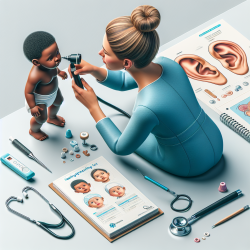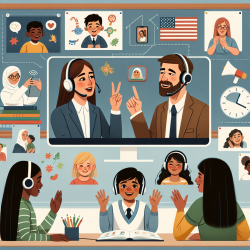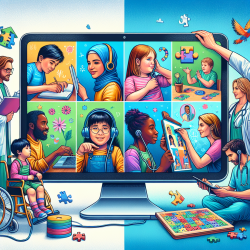As a practitioner dedicated to the auditory health of the youngest among us, the opportunity to refine our skills and knowledge in detecting early hearing loss in infants is invaluable. The research presented in "Infant Hearing Screening: Theory and Practice" by John T. Jacobson, George T. Mencher, Michael R. Seitz, and Gylfi Baldursson offers a treasure trove of insights and advancements in the field of neonatal auditory screening. This blog aims to unpack these findings and suggest how practitioners can implement or further research these outcomes to improve early detection and intervention practices.
Historically, the early identification of hearing impairment in infants has faced numerous challenges. Initial neonatal programs, despite their urgency, encountered difficulties that drew criticism due to the lack of accuracy and efficiency. However, through the dedication of researchers and advancements in clinical practices, significant strides have been made. The emergence of the United States Joint Committee on Infant Hearing in 1970 and the convening of international conferences have paved the way for the development of more refined screening programs. These efforts have been crucial in the early identification of hearing loss, setting a new standard in neonatal care.
The research outlines a model program that has significantly influenced the philosophy and approach to neonatal hearing screening. The program emphasizes the importance of a high-risk register and a behavioral protocol as additional screening procedures. These recommendations have been instrumental in refining the procedures used in early identification efforts. Practitioners can adopt these guidelines to enhance their screening processes, ensuring that infants at risk are identified and receive the necessary interventions as early as possible.
Furthermore, the research discusses the implementation of a clinical program in Halifax, which serves as a compelling case study for the effectiveness of these screening and follow-up methods. The program's success highlights the feasibility and value of implementing such a comprehensive screening program on a larger scale. Practitioners can draw inspiration from this model to advocate for or establish similar programs within their own communities or institutions.
Encouraging further research and continuous improvement in screening practices is crucial. As the field of audiology advances, staying informed and adopting evidence-based practices will be key to addressing the challenges of early hearing loss detection. Practitioners are encouraged to engage with ongoing research, participate in professional development opportunities, and contribute to the body of knowledge on neonatal auditory screening.
In conclusion, the insights from "Infant Hearing Screening: Theory and Practice" provide a valuable framework for enhancing early hearing loss detection in infants. By implementing the outcomes of this research and advocating for further study, practitioners can play a pivotal role in improving the auditory health of infants. This not only benefits the individual children and their families but also contributes to the broader goal of reducing the impact of hearing impairment on development and quality of life.
To read the original research paper, please follow this link: Infant Hearing Screening: Theory and Practice.










